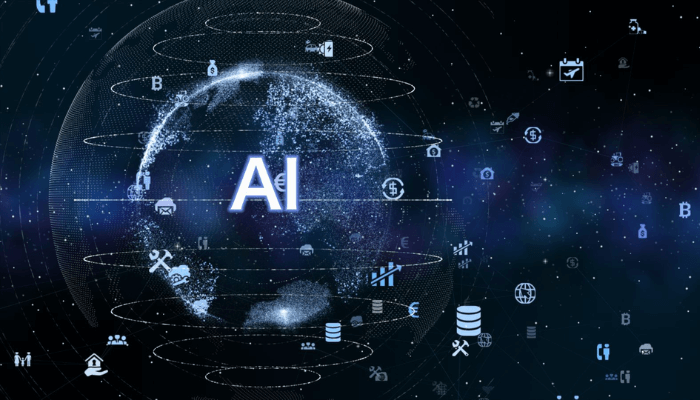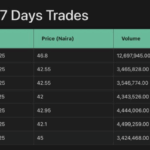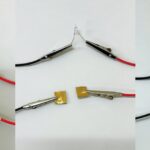Artificial Intelligence (AI) is no longer a distant concept for Nigeria; It is increasingly becoming a significant force for change in industries, governance and everyday life. Over the past few years, Nigeria's AI ecosystem has shifted from curiosity to real progress, driven by creativity, necessity, and a youthful spirit that refuses to be left behind. Today, startups, government agencies, educators and investors are shaping a story that blends innovation, ambition and local relevance.
Possibilities of possible change
Nigeria's adoption of AI reflects its broader technological development, driven by a generation that is adventurous, inventive and eager to solve problems. With over 60 AI-focused startups emerging in healthcare, finance, agriculture and education, Nigeria is rapidly establishing itself as one of Africa's leading innovation hubs.
Startups such as Awarri, AutogonAI and ZeroComplexAI are developing local tools and systems, including voice models that understand Nigerian accents and intelligent automation for small and medium enterprises. Others, like Terrahaptics, have already deployed Iroko drones on mines, farms and other critical assets.
Government leadership has also become more thoughtful. The launch of the National Artificial Intelligence Strategy (NAIS) and the creation of the Nigeria National AI Trust is a decisive step towards a structured, responsible approach to AI. The National Information Technology Development Agency (NITDA) continues to set the pace, launching initiatives such as the Regulatory Intelligence Framework and the AI Policy Test Lab to ensure that innovation grows hand in hand with accountability.
These efforts demonstrate that Nigeria is poised to lead Africa’s digital transformation journey; Yet, the real momentum comes from local champions who are turning policy into tangible impact and ensuring that technology meets human needs.
Opportunities in key sectors
AI is reshaping some of Nigeria's most important sectors. In financial services, traditional institutions like Sterling Bank, UBA and Interswitch are using AI for fraud detection, credit scoring and customer engagement, while fintechs like MoneyPoint, OPay, LemFi and Duplo are bringing financial inclusion to millions of people through data-driven lending and automation.
In health care, AI is improving diagnosis, patient management, and local innovation. Companies such as 3D Africa, HealthStack and Zuri Health are applying AI to telemedicine, imaging and medical device production in Nigeria, reducing dependence on imports and improving affordability.
The agriculture sector is equally promising. Startups like Relief, Crop2Cash and AgroData are helping farmers use predictive analytics for weather forecasting, soil quality assessment and pest control, resulting in higher yields and less wastage.
In manufacturing and logistics, companies like Doric Logistics are using AI to monitor supply chains, optimize routes, and cut operating costs. Technology is also entering education, where platforms like Class, LearnAM and Utiva use AI to optimize learning pathways and impart skills to thousands of young Nigerians.
Education and talent development could prove to be AI's greatest long-term gift to Nigeria. With almost half the population under the age of thirty-five, initiatives such as the Three Million Technical Talents (3MTT) program and AI in Nigeria’s Learning and Practice community are creating a new generation of data scientists, engineers and innovators who can compete globally while solving local challenges.
lag and growing pains
Despite this rapid growth, the ecosystem still faces serious challenges. Access to quality, structured data remains limited, with most organizations relying on fragmented information that weakens AI accuracy. Weak infrastructure, including power supply issues and limited access to cloud computing, is hampering progress, especially outside major cities such as Lagos and Abuja.
There is also a problem of funding. While the Nigerian Artificial Intelligence Research Scheme has supported startups and researchers with grants, many are still struggling to attract long-term investors. AI development is expensive, and without consistent financial support, many promising innovations risk stagnation.
There is also the issue of readiness of talent. Although thousands of young Nigerians and professionals are now studying AI and related fields, practical experience remains scarce. Many graduates and professionals do not have access to real-world deployment opportunities. Continued migration of skilled professionals is also widening this gap.
Ethical awareness and regulation must deepen. As NITDA Director General Kashifu Inuwa Abdullahi has said, regulating AI is not about restricting innovation; It is about ensuring that it advances the public good responsibly. Nigeria must continue to balance creativity with ethics to earn public trust and avoid digital inequities.
Ecosystem champions are moving forward
Visionary organizations and individuals are at the center of this change. AI in Nigeria, through its annual communities of learning and practice, the InnovateAI conference and the annual Nigeria AI Landscape, continues to connect stakeholders, shape policies and drive national conversations around AI adoption.
Private sector leaders like MTN, Flutterwave and Stanbic IBTC are integrating AI into their operations and governance structures, while universities, research institutes and innovation centers are inspiring young Nigerians through practical learning and mentorship. Across the country, community-driven projects like AI Saturdays Lagos and university-based AI Clubs are helping to democratize knowledge and spark interest at the grassroots level.
ground level
The development of AI across Nigeria will depend on how well it scales to the tasks it is already performing. Strengthening infrastructure, promoting fair regulation, investing in talent, and encouraging collaboration between startups and large enterprise organizations will be important.
If properly supported, AI can be a catalyst for Nigeria's economic renewal. It can create jobs, improve governance, enhance education and unlock billions of naira in new value.
Dotun Adeoye is a technology strategist, AI innovation leader and co-founder of AI in Nigeria. He has over 30 years of global experience across Europe, North America, Asia and Africa advising governments and businesses on AI transformation and digital development.











